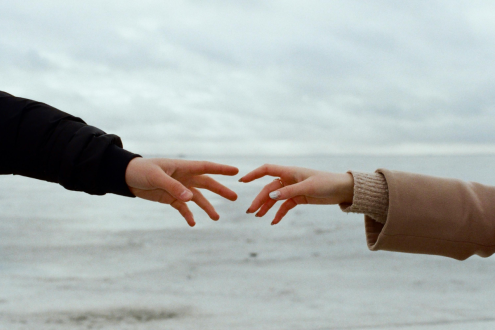Are you exhibiting symptoms of loss aversion?
Ever stayed in a job you hate because the alternative may be worse? Or remained in a not-so-great relationship because you can’t bear the thought of walking away? You may be exhibiting symptoms of loss aversion, as Lizzie Enfield explains

The man in the garage said my car was unlikely to get through its next MOT and would have to be scrapped, but I could probably sell it now and get a few hundred quid. I was living in central London and hardly used the car. I could have done with a bit of extra money, but I was reluctant to get rid of the vehicle that I’d worked hard to buy. So I kept it for a few more months, until the engine gave up and I had to pay someone to take it away.
My decision was not sensible, but it was a classic example of loss aversion – a term with its roots in economic theory – which refers to people’s tendency to prefer avoiding losses to acquiring equivalent gains. It’s evident in gambling habits. If people are prepared to risk money on a bet, they want more money in return. One-toone odds are not attractive. If we put £10 on a horse, we might be willing to lose the money if it does not win, but if it does win, then we want to get back more than the original £10.
Fight the fear
Gambling aside, loss aversion is equally applicable in our daily lives, affecting choices we make in our relationships, friendships and jobs. For years, Tina Carter travelled to London every day, to a job she loved. But gradually her enthusiasm dulled – both for the work and daily commute.
‘I spent about four hours a day travelling, thousands of pounds on fares and hardly ever saw my friends and family. I dreamed of going freelance and gaining more control over my own life. But, while I knew I had transferable skills, something stopped me from taking the plunge.’ John Hackston, head of thought leadership with business psychology company OPP, believes Tina was exhibiting classic signs of loss aversion.
‘Most people are resistant to change and don’t want to let go of things. But some personality types are more prone to loss aversion than others. If you can begin to understand that and adopt strategies that make embracing change easier, then there are ways of getting over it,’ he says.
Tina did eventually go freelance, but only after redundancy forced her out of her job. She’s now developed a good portfolio career and wishes she’d done it years ago. ‘If you’re prone to loss aversion, but you want to make a leap, then you need to think about making it in incremental steps,’ Hackston advises. ‘Going freelance is a good example. A way to offset loss aversion might be to go part-time and build up clients, while retaining the security of a regular salary. Another personality type might take the plunge, but offset the potential loss with background research and networking first.’
Loss aversion is part of the evolutionary process. It is what enabled our ancestors to survive in times when resources were scarce, societies strict, and communities contained. But, these days, it may do more harm than good, holding us back at work, keeping us in bad relationships and avoiding new things, for fear of failure.
The beginning of the end
Anyone who has read the book Eat, Pray, Love will know its author, Elizabeth Gilbert, initially stayed in a relationship in which she was deeply unhappy, rather than lose the stability and status it provided. It’s a familiar story, not unlike Evie McLoughlin’s.
‘I’d been married for more than 20 years. I owned a house and had two children with my husband, but when the kids left home there was nothing left. I was in my mid-forties, and the temptation to end the marriage and start again was huge, but I resisted it for another five years until an affair put a bitter end to a marriage that could have ended amicably and earlier,’ she says.
‘In many ways loss aversion is a good thing in relationships,’ says Relate counsellor, Arabella Russell. ‘It means we don’t leap from one to another, but try to make things work. The downside is that people may stay in unions that are well past their sell-by dates, because they are so fearful of the losses that come with ending it.
‘The key is to talk these things through and try to work out if the benefits of ending a relationship outweigh the losses. Loss aversion often makes it hard for one partner or other to see that they might be happier without each other.’
Monkeys have been shown to have this evolutionary bias, too. In an experiment, they were trained to buy grapes using tokens. One man always gave them two grapes, but sometimes a bonus third, and the other always gave three but sometimes took one away. So, exactly the same deal, yet the monkeys preferred the man who gave the bonus grapes to the one who took them away.
I know how they feel. I recently filed my tax return and, although it’s irrational, giving up money that is already in my bank account feels far more painful than when I was employed and it was taken straight out of my salary. That’s loss aversion at play.
So too, when my husband came home from the cinema having sat through a three-hour film, which, 10 minutes in, he decided, he hated. ‘Why didn’t you leave?’ I asked. ‘I’d have lost the money if I hadn’t watched it,’ was his loss-averse reply. But what about the time he lost, in addition?
Taking control
Whether it’s a cinema trip, a failing business or a long-term relationship – we don’t want to feel the loss of what’s already been invested, be it money, time or our emotions. So we stick it out, hoping it will come good at some point, even if this leads to a bigger loss in the long run.
We are all loss averse to some extent. But the good news is that once you understand it, you can override it. It requires a little more thought, taking a step back, trying to evaluate a given situation and seeing that the losses don’t always outweigh the gains, even if initially, our evolutionary bias makes it feel that way.
Are you prone to loss aversion?
- Do you tend to avoid financial losses at all costs, even if it means spending hours chasing, for example, a tiny refund?
- Do you devote a lot of time trying to make things work, rather than abandoning them altogether?
- Do you generally prefer to maintain the status quo, rather than taking a leap into the unknown?
- Do you hoard stuff, keep friendships going even though you may not like the person, and accommodate family members you can’t bear, even though you might be better off without them?
How to make the right decision
- If you are prone to loss aversion, talk things through with people you trust to get their opinions and ask yourself – what is the worst that could happen if you make changes? What is the best?
- Try to turn situations around. Ask yourself, how hard would you fight to get into the relationship or job you are reluctant to let go?
- Have you come close to jacking it all in, only to realise that you actually value your lot in life? Loss aversion works both ways. It’s an instinct, which can also protect you from making mistakes.
Photograph: iStock









